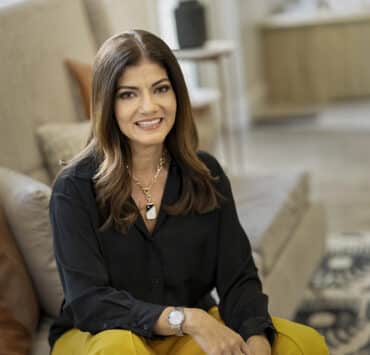|
Getting your Trinity Audio player ready...
|
Growing up in Puerto Rico, I was surrounded by beauty as an integral part of our culture. My mom, grandmother, aunts, cousins, and friends were always talking about beauty brands, products, and trends. To them, and to so many other Latinas, beauty is more than a routine—it’s a ritual. Learning how to care for our skin and apply makeup is how the women in our lives teach us to be women.
My mom in particular taught me so much about beauty. It wasn’t because she wanted me to look made up: rather, she wanted me to feel like my best and most empowered self. Because of her, I have felt a deep love for beauty products and their ability to transform a woman’s confidence ever since.
Unfortunately, this deep emotional connection to our Hispanic community—and the deeper meaning of beauty in our culture—has not been as evident as it could be in beauty brands today. But I am on a mission to change that.
I joined Clinique and the Estée Lauder Companies in June 2020, as the COVID-19 pandemic was raging across the planet. I was no stranger to difficult professional situations, but as we all know, this was completely different. Professional and personal anxiety were sky-high for everyone, and my team (among them, many working parents) suddenly had a new boss coming into their Zoom rooms.
It’s my nature to find the good in any situation, to lead teams while focusing on the power of empathy, authenticity, and optimism. These are critical leadership ingredients in a modern organization: we must take time to truly listen to how people are feeling, time to understand our differences, and time to build trust.
And my team has consistently demonstrated the efficacy of that approach—as a result of their empathy, agility, resilience, and optimism, we have not only carried our beloved brand through the storm but come out stronger than before.
But empathy is also going to help us transform the beauty industry so that it is reflective of the changing consumer we are trying to serve. Understanding the cultural nuances of our consumers is how brands of the future will win. If there was one answer, one way of connecting with everyone, we would have seen brands capitalizing on that long ago.
To truly succeed, we must take the time to unpack the deep sociological and cultural forces that are affecting our consumers and ourselves. We must ensure that there is representation—including Latina representation—at our decision-making tables so that they can speak for the consumers we’re striving to create relevant connections with. And we must ensure that our consumers see that representation on a global scale. I have always championed Latina talent to represent our brands—in fact, we recently signed Melissa Barrera as Clinique’s first Latina global ambassador. I knew that young women would see themselves in her face—but even more, that they’d hear her story of resilience, dedication, and hard work and immediately build a deeper, more meaningful connection to her and our brand.
This is a slow process, and one that requires sensitivity, care, and deep listening. But I wholeheartedly believe it is the only way forward.

